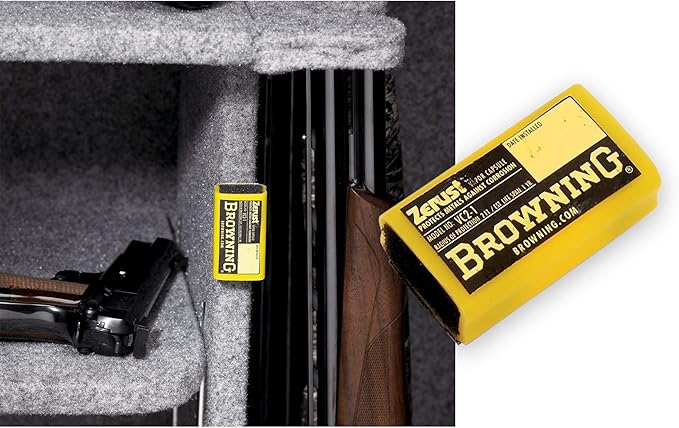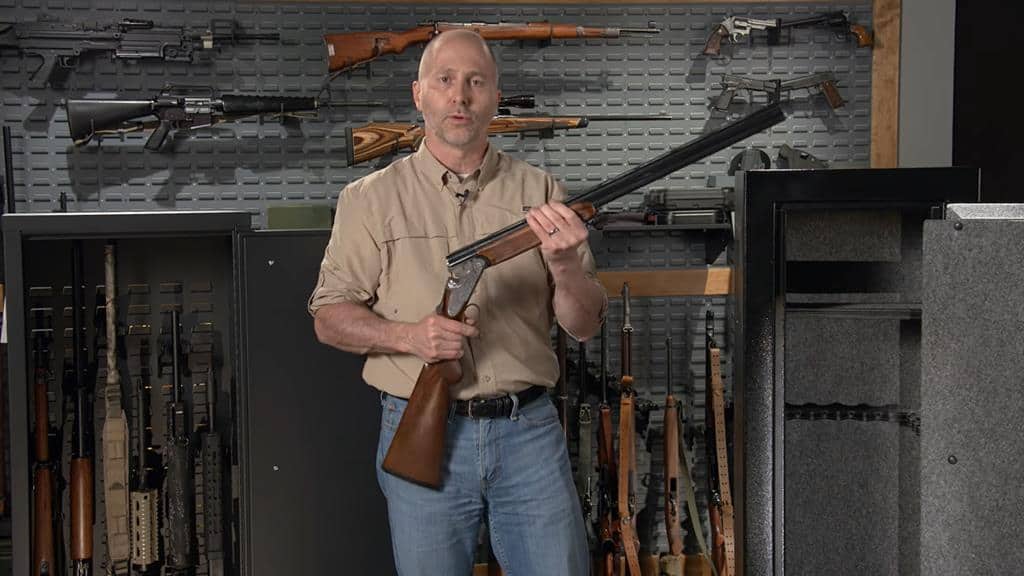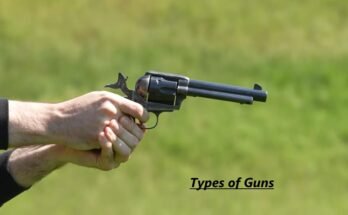If you’re like most gun owners, you probably have a few questions about gun safes. Are they corrosive? Do they really keep your guns safe?
Here’s what you need to know about gun safes and corrosion. Gun safes are made from a variety of materials, including steel, aluminum, and even plastic. However, the vast majority of gun safes on the market today are made from steel.
Steel is strong and durable, making it an ideal choice for a gun safe. However, steel can also be susceptible to corrosion. Corrosion is caused by exposure to moisture and oxygen.
When these two elements come into contact with steel, they cause the steel to oxidize or rust. This process can weaken the steel and make it more vulnerable to damage. While all gun safes are susceptible to corrosion, there are some that are more resistant than others.
“Gun safes that are made from stainless steel or powder-coated metal are less likely to corrode than those made from standard carbon steel. If you’re concerned about corrosion, look for a gun safe that is specifically designed to resist it. In general, gun safes do a good job of protecting your guns from damage.”
However, they’re not perfect and they can’t completely prevent corrosion. If you live in an area with high humidity or if you often take your guns out in inclement weather, your safe may be more likely to corrode over time.
Video: You Shouldn’t Have to Deal with Gun Safe Corrosion!
Will a Gun Safe Keep Guns from Rusting?
You probably don’t give much thought to how climate controlled your gun safe is – after all, it’s just a big metal box, right? However, the truth is that the conditions inside your gun safe can have a significant impact on the long-term condition of your firearms. In particular, if your gun safe isn’t properly humidity and temperature controlled, it could be causing your guns to rust.
So, what can you do to prevent this from happening? First and foremost, make sure that your gun safe is located in a cool, dry place. If possible, keep it away from any external sources of heat or moisture (like a radiator or humidifier).
You may also want to consider investing in a dehumidifier specifically for use inside your gun safe. Another important consideration is the type of material used to line the interior of your gun safe. Many safes come with an inexpensive carpet lining that does little to nothing in terms of preventing rust.
For better protection, look for a model with an interior made from corrosion-resistant materials like stainless steel or powder-coated steel. Finally, always remember to wipe down your guns after using them and before storing them away in the safe. This will help remove any moisture or dirt that could potentially cause rusting over time.
Why Would Guns Rust in a Safe?
Guns rust for a variety of reasons. If they are stored in a humid environment, the air can cause the metal to corrode. Additionally, if the gun is not cleaned properly after use, residue from the bullets can cause rusting.
Finally, if the gun is simply old, the metal may be more prone to corrosion. There are a few things you can do to prevent your guns from rusting. First, make sure they are stored in a dry place.
If you live in a humid climate, consider investing in a dehumidifier for your home or gun safe. Second, clean your guns regularly and thoroughly after use. Be sure to remove all traces of dirt, grease and debris.
Third, apply a thin layer of oil to your guns periodically to help protect them from moisture and corrosion. If your guns do start to rust, there are a few ways to remove it. You can purchase special cleaners that will safely remove rust without damaging the metal beneath.
Or, you can try using white vinegar or lemon juice as home remedies.
Will Guns Rust in a Safe in Garage?
If you’re like most gun owners, you probably store your firearms in a safe. But what happens if that safe is stored in your garage? Will the guns inside rust?
The answer to this question depends on a few factors, such as the type of safe, the location of the safe, and the humidity levels in your garage. Let’s take a closer look at each of these factors to see how they can affect whether or not your guns will rust while stored in a garage safe.
1. Type of Safe:
If you have a steel safe, there’s a good chance that it will eventually start to rust if it’s stored in an environment with high humidity levels.
However, if you have a composite safe (one that’s made with materials other than steel), it’s much less likely to rust. So, if you’re worried about your guns rusting in storage, opt for a composite safe.
2. Location of Safe:
Another factor to consider is where you store your safe within your garage.
If you keep it near an exterior door or window, then there’s a greater chance that moisture will be able to get inside and cause the guns inside torust. On the other hand, if you store yoursafe away from any potential sources of moisture (such as doors and windows), then there’s less of a chance that your guns will rust while in storage.
3. Humidity Levels:
Finally, one of the most important factors when it comes to whether or not guns will rust while stored in a garage is the humidity levels present in that space.
If the humidity levels within your garage are high, there ‘s a greater chance that any guns stored inside will start to rust. However, if the humidity levels are low, then there’s less of a chance that your guns will rust. So, if you want to reduce the risk of your guns rusting while in storage, make sure to store them in garages that have low humidity levels .
What Should You Not Keep in a Gun Safe?
A gun safe is a great way to keep your firearms secure, but there are some things that you should not keep in your gun safe. Here are four things to avoid storing in your gun safe:
1. Ammo – While it may seem like a good idea to store ammo in your gun safe, it can actually be dangerous.
If there is a fire or other disaster, the ammo can explode and cause serious damage. It’s best to keep ammo in a separate, dedicated storage area.
2. Household cleaners – Many household cleaners contain chemicals that can damage firearms.
If you must store cleaners in your gun safe, make sure they are in sealed containers and away from any guns.
3. Food – Storing food in your gun safe can attract pests and rodents. These animals can damage your guns and ammunition, so it’s best to keep them out of the safe entirely.
4. Valuables – Your gun safe is designed to protect firearms, not valuables like jewelry or cash. If you need to store valuables for security reasons, get a dedicated safes for those items instead.

Conclusion
Gun safes themselves are not inherently corrosive. However, the contents stored in a gun safe, such as firearms and ammunition, can be susceptible to corrosion if proper storage conditions are not maintained. Here are some factors to consider:
-
Moisture: Moisture is a significant contributor to corrosion. If the gun safe is located in a damp or humid environment, it can create conditions conducive to rust and corrosion on firearms, ammunition, and other metal components. Safes in basements or garages are particularly susceptible.
-
Condensation: Changes in temperature can cause condensation inside the safe, especially if the safe is exposed to temperature fluctuations or if it’s opened frequently. Condensation can lead to moisture buildup, which can promote corrosion.
-
Moisture Absorbents: Many gun safes include features like dehumidifiers or desiccant packs to absorb excess moisture and prevent corrosion. Using these accessories can help maintain a dry environment inside the safe.
-
Proper Storage: Firearms and ammunition should be stored correctly within the safe. Guns should be cleaned and lubricated regularly to prevent corrosion, and they should be stored in a manner that minimizes contact between metal parts. Ammunition should be stored in sealed containers or ammo cans to prevent moisture exposure.
-
Quality of Safe: High-quality gun safes are often equipped with better seals and insulation to minimize moisture ingress. They are also more likely to have built-in features like dehumidifiers or ventilation to maintain a dry interior.
-
Regular Inspection: Periodically inspect the contents of your gun safe for signs of corrosion or moisture damage. This can help you catch issues early and take corrective measures.
To prevent corrosion within a gun safe, it’s essential to control the humidity and moisture levels in and around the safe. Here are some additional tips:
- Use a hygrometer inside the safe to monitor humidity levels.
- Keep the safe in a climate-controlled environment if possible.
- Seal any gaps or cracks in the safe to prevent moisture from entering.
- Consider using a rechargeable or electric dehumidifier if you live in a particularly humid area.
- Rotate stored firearms and ammunition periodically to ensure that all items receive proper ventilation.
By taking these precautions and maintaining a dry environment within the gun safe, you can help prevent corrosion and keep your firearms and ammunition in good condition.



